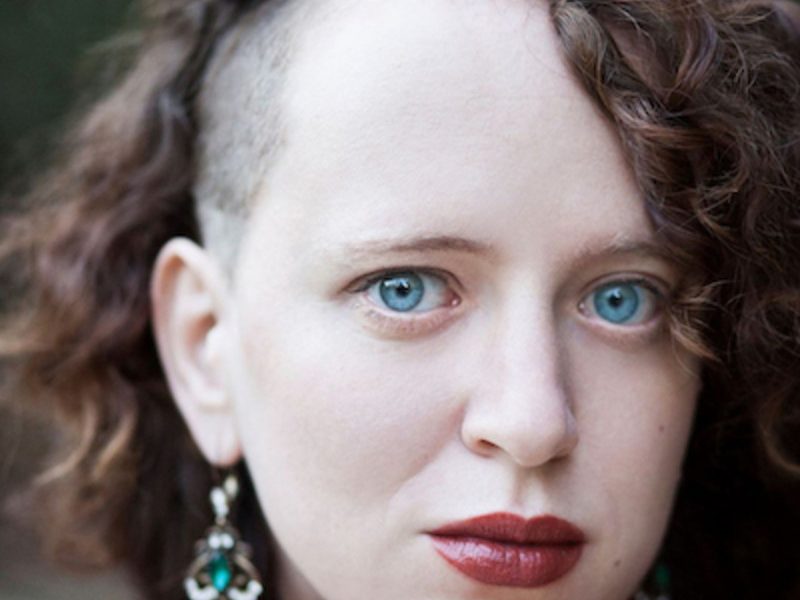Tara Isabella Burton: On Learning Something From Every Draft
Tara Isabella Burton’s debut novel, Social Creature, was named a “best book of the year” by The New York Times, Vulture, and The Guardian, and her first book of nonfiction, Strange Rites: New Religions for a Godless World, was as praised by Tim Shriver as “the most thoughtful analysis of our current spiritual crisis anywhere.”
Her fiction and nonfiction have appeared in The New York Times, The Wall Street Journal, Granta, and more. She received a doctorate in theology from Trinity College, Oxford, where she was a Clarendon Scholar, in 2017. Find her on Twitter.
In this post, Tara discusses the decade of work that went into her new literary novel, The World Cannot Give, how starting over isn’t losing work, and more!
Name: Tara Isabella Burton
Literary agent: Emma Parry, Janklow & Nesbit
Book title: The World Cannot Give
Publisher: Simom & Schuster
Release date: March 8, 2022
Genre/category: Literary
Previous titles: Social Creature (novel), Strange Rites: New Religions for a Godless World (nonfiction)
Elevator pitch for the book: Brideshead Revisited meets Fight Club: a boarding-school Gothic novel about religious faith, lesbian desire, and the search for transcendence among the insular members of a chapel choir.
IndieBound | Bookshop | Amazon
[WD uses affiliate links.]
What prompted you to write this book?
My original vision was a “boarding-school Bonnie & Clyde”—based on my own childhood experiences at boarding school. I wanted to capture the moral hunger and spiritual intensity I remembered of the cloistered environment, where incredible intellectual seriousness went hand in hand with emotional immaturity. I wanted to figure out what could inspire two teenagers, searching for meaning, to turn to violence instead.
How long did it take to go from idea to publication? And did the idea change during the process?
Almost a decade. I’ve been writing a version of this book since about 2014—I must have gone through nearly 10 separate drafts at this point. The earlier drafts of the novel were very different—told in flashback, through the perspective of an adult journalist (and alumna of the school) who ended up cut quite early on. And the characters and theme themselves changed—the original central duo consisted of a boy and a girl, and the question of religion barely came up.
Were there any surprises or learning moments in the publishing process for this title?
Absolutely. My incredible editor, Carina, having bought the book for S&S, gave me the best piece of advice I’ve ever received. She told me that the draft she read (about three drafts away from the final!) felt like I wanted to write a book about religion and faith, but that I was holding myself back. In a sense, she gave me permission to bring out the themes already implicit in the novel—to make them explicit and develop them—and the book was so much better for it.
Were there any surprises in the writing process for this book?
Virginia Strauss herself started as a minor character in the earliest drafts of the book. But she was by far the most charismatic. At one point, someone read the book and expressed disappointment that Virginia wasn’t used more—and that’s when I realized, Oh, she’s actually the most important character of the book. And I started over, with Virginia as the lead, and the story I was trying to tell finally came into focus.
What do you hope readers will get out of your book?
I want to help readers recapture that sense of seriousness, of hunger—for spiritual fulfillment, for ecstasy, for something more—that so many of us experience when we’re young(er) and (relatively) naïve—and that we too easily grow out of or explain away. I want readers to come away from The World Cannot Give with a real sense that the hunger for meaning can be as strong a motivating force as, say, romantic desire.
If you could share one piece of advice with other writers, what would it be?
Don’t be afraid to throw things out and start over—you’re not “losing” work but rather learning more and more each time. Every time I’ve “thrown out” a completed draft and started from the beginning, I’ve had the opportunity to tell a richer and more complex story. And the drafting process becomes easier as a result—I don’t agonize over every word or scene and choice, because I anticipate that I’ll go through many drafts—so I have the freedom to explore, to take things out and put them back in.

If you want to learn how to write a story, but aren’t quite ready yet to hunker down and write 10,000 words or so a week, this is the course for you. Build Your Novel Scene by Scene will offer you the impetus, the guidance, the support, and the deadline you need to finally stop talking, start writing, and, ultimately, complete that novel you always said you wanted to write.




